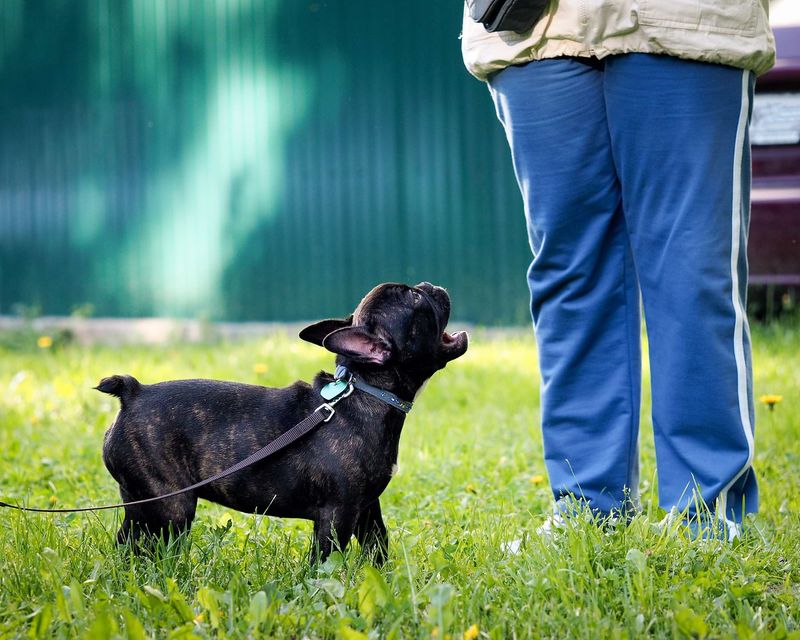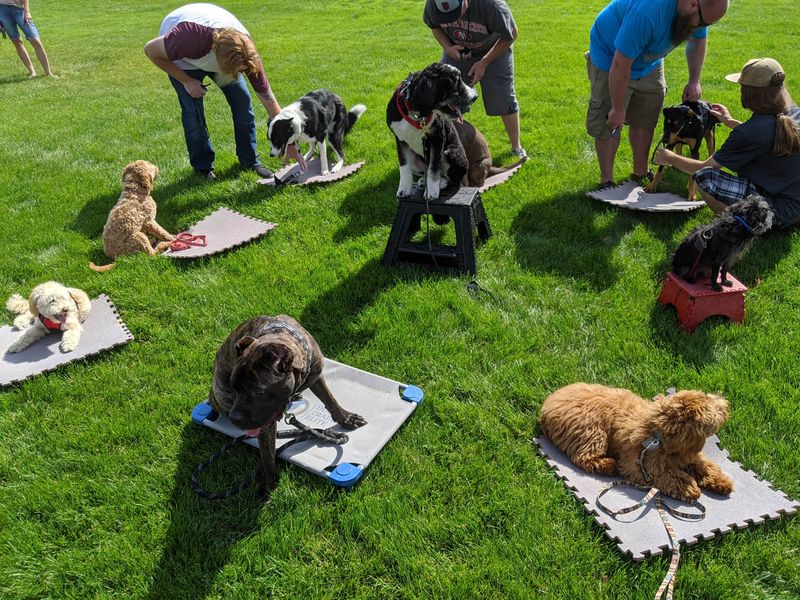12 Tips To Curb Your Dog’s Excessive Barking

Excessive barking can turn a peaceful home into a noisy circus. Fear not, there’s hope! These 12 vibrant strategies will help bring tranquility back, while keeping tails wagging.
With a mix of discipline, creativity, and understanding, you’ll transform your chatty canine into a calm companion. It’s not just about silencing their barks, but understanding their unique voices.
1. Understand Their Triggers

Ever wondered what sets off your pooch? Observing their triggers is crucial. Whether it’s the mailman or a squirrel, knowing what stimulates your dog can guide you to curb those endless barks.
Spend some time identifying these triggers, and you’ll be on your way to a quieter home. Awareness is the first step in change.
2. Provide Adequate Exercise

A tired dog is a quiet dog! Exercise burns off excess energy that could manifest as barking. Take them for a run or engage in an energetic game of fetch. Physical activity not only keeps them healthy but also mentally satisfied. Remember, a well-exercised dog is less likely to bark unnecessarily.
3. Use Positive Reinforcement

Rewarding good behavior works wonders. Whenever your dog quiets down, give them a treat or affection. They’ll quickly learn that silence equals rewards. Positive reinforcement builds a strong bond and encourages desired behavior. It’s an effective way to shape their responses without harsh methods.
4. Teach The ‘Quiet’ Command

Teaching the ‘quiet’ command requires patience and persistence. Begin with treats in hand, rewarding your dog when they stop barking on command. Use a firm voice but stay calm. Consistency is key, and soon your dog will associate the word with silence. This command is a lifesaver during noisy situations.
5. Provide Mental Stimulation

Just like humans, dogs need mental challenges to stay engaged. Puzzle toys or training sessions can occupy their minds and reduce boredom-induced barking. Keeping their brains active helps in reducing anxiety and the urge to bark. Remember, a mentally stimulated dog is a happy dog.
6. Socialize Your Dog

Socializing your dog can dramatically reduce barking. Exposure to different environments and other dogs teaches them to be calm in new situations.
Arrange playdates or visit dog parks. Socialization helps them understand that new faces and places aren’t reasons to bark incessantly. It’s all about expanding their world.
7. Limit Exposure To Stimuli

Manage your dog’s environment by limiting exposure to triggers. Close curtains or use privacy film on windows to block outdoor distractions. This simple change can reduce barking caused by visual stimuli. Creating a calm environment helps your dog feel secure and less reactive to outside noises and sights.
8. Create A Safe Space

Every dog needs a sanctuary to retreat. Designate a quiet area where your dog can relax without disturbances. Fill it with their favorite toys and a comfortable bed.
A safe space offers them a retreat during overwhelming moments, reducing stress-related barking. It’s their personal haven away from the chaos.
9. Consult A Professional Trainer

When barking becomes overwhelming, a professional trainer might be the answer. They bring expertise and fresh perspective to tricky situations.
Trainers can tailor strategies specific to your dog’s needs. Investing in professional help can make a significant difference, turning chaos into calm with expert guidance.
10. Avoid Reinforcing Bad Habits

Attention is a powerful reward. When your dog barks for attention, ignoring them can teach that barking gets them nowhere. Be consistent and don’t give in to their demands. By avoiding reinforcement of bad habits, your dog learns silence is the better option, leading to a more peaceful household.
11. Use Anti-Bark Tools Wisely

Anti-bark tools, like ultrasonic devices, can be helpful when used correctly. These tools provide immediate feedback to stop barking without discomfort. Use them as a part of a broader training plan, never as a standalone solution. They’re a useful aid, but remember, training and understanding come first.
12. Stay Patient And Consistent

Patience and consistency are your best allies in this journey. Change won’t happen overnight, but with time, your efforts will pay off. Stick to your training plan and be patient with progress. Your dedication will transform your vocal dog into a well-behaved companion. Remember, perseverance leads to success.






